|
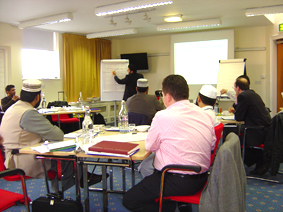 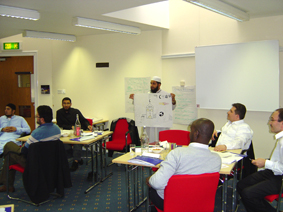
Many Imams in UK Mosques are from overseas and have arrived in the country over the last decade. Not all of them have the knowledge or the understanding about Muslims in Britain to which they can relate their teachings when delivering sermons or working with their communities. Some of the Imams who have acquired these skills have moved onto better paid jobs in statutory sectors, e.g. Prisons, Hospitals and the Armed forces. We aim to work with the Imams who are left behind and up skill those to ensure that the services they provide are joined-up and appropriate for the community. Many Mosques and Islamic organisations in UK do not have the right governance, systems or support networks in the community and as a result have limited understanding of integration or community cohesion. This often leads to build up of tensions which are left to fester and often further alienate and sideline Mosques and Islamic organisations, many of which are willing to act as front line organisations but do not have the skills or information base to take up the challenges.
We aim to reverse this inclination by developing and increasing Mosques and Islamic organisations infrastructure, governance and confidence through providing training to key individuals in management committees, particulalrly Imams who can play their role in influencing not only committee members and their congregation but others in the community. The trainees may be Imams and Mosque committee Chairs, Secretaries or Treasurers.
We aim to build their capacity in areas of Leadership, Legal and Governance, Communication and Partnership Brokerage, Business planning, Financial management, Organisational systems and Project delivery. Our initial indications are that over 50% of Mosques do not have computers and access to internet facilities in the Mosques. Where required we will work with the organisation to develop an interactive website to have an internet presence and develop links with young people in their locality and further afield. The 'Beacon Mosques' project in its first Year worked with five large Mosques. In Year 2, will work with a further 30 medium size Mosques and Islamic organisations.
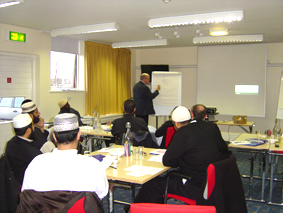 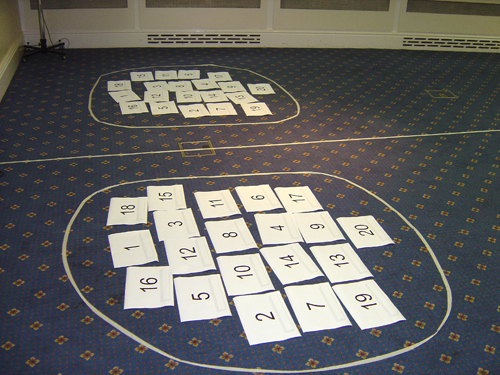
There are two key parts to this programme:
1) Equipping organisations with improved capacity:- For Each Mosque or Islamic organisation we will carry out a wide-ranging audit of their status, constitution or their governing instrument, policies and procedures, structures and other necessary documentation including staffing and their skill levels so that their needs and gaps can be identified. From this work we will establish a list of most essential priorities by working closely with individual Mosques and Islamic organisations and help them to produce such documents and tools that will be necessary to build their capacity. A key area of this work will include the development of individual and group action plans for the Mosques and the Islamic organisations, identifying which issues can be tackled, which cannot, and the consequences.
2) Developing the right skills and the flow of information:- For Each Mosque or Islamic organisation we will organise central training courses so that key representatives achieve necessary knowledge, confidence and skills to deal with community tensions, ideas and ideologies. We will also ensure that we make use of other training provided via local statutory and voluntary sectors in the area to encourage joined-up delivery. The areas of training may include:
- Inspirational Leadership, theory and models for the 21st Century
- Vision and strategy, how to better lead your community and work together across faiths
- History and Dynamics of British Muslims
- Power and Political Intelligence, Extremists radicalisation, use of ICT and wider circles
- Diversity, Prejudice, Values of Diversity in the 21st Century
- Conflict resolution, Negotiation, Decision Making and encouraging dialogue within communities
- Governance, role of Trustees and chairing meetings
- Creative Problem Solving and working in whole systems, Self-awareness and development, assumptions, ideas and values
- Giving and receiving feedback
- Presentation skills and building a sense of community
- Project and Financial Management
(Further information about the Urban Nexus ‘Personal and Leadership Development Programme’ including the philosophy, content and learning outcomes can be found on this site on the Training page)
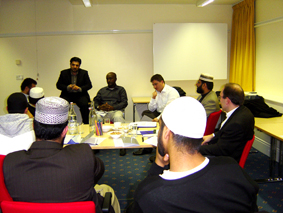 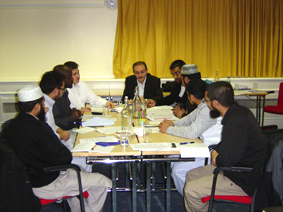
|
